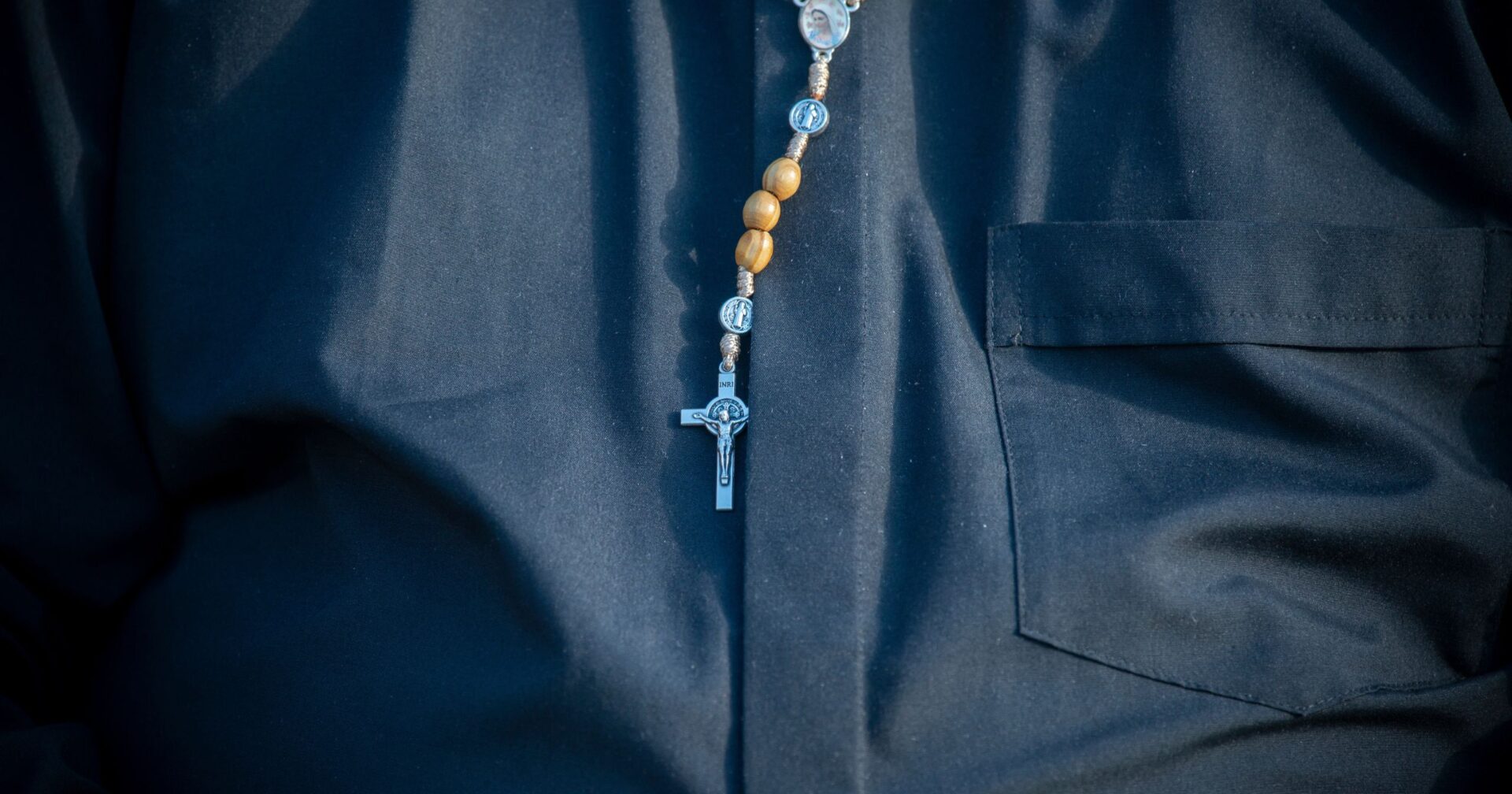The vow of clerical celibacy, where men who take Holy Orders relinquish their right to marry in order to devote themselves completely to the Church, is one of the most well-known aspects of the priesthood. However, most people haven’t heard of these little-known Catholic priests that are allowed to married.
“Clerics are bound to celibacy which is a special gift of God by which sacred ministers can adhere more easily to Christ with an undivided heart and are able to dedicate themselves more freely to the service of God and humanity.” – Code of Canon Law 277 §1
In the very earliest years of the Church, the clergy was comprised of largely married men. The earliest reference to forbidding clerics to marry comes from a document written at the Synod of Elvira circa 305-306 A.D.
“It is decided that marriage be altogether prohibited to bishops, priests, and deacons, or to all clerics placed in the ministry; whoever does this shall be deprived of the honor of the clerical office.” – Canon 33, Synod of Elvira circa 305-306 A.D.
Starting from the Fourth century, clerical celibacy became the norm as a form of spiritual discipline and functioned to ensure the independence of the Church. Today, the charism of celibacy has been held and reaffirmed by the Church as a priceless gift from God. However, because clerical celibacy is an ecclesiastical law and not a doctrine, exceptions can be made by order of the Pope.
In 1980, Pope Saint John Paul II issued a document from the Holy See through the Congregation for the Doctrine of the Faith that set up the “Pastoral Provision” concerning Roman Catholics converting from the Anglican tradition.
Under the pastoral provision, clergy from the Episcopalian or other Anglican traditions can convert to Catholicism and remain married. These married priests and their parishes under the pastoral provision were entered into the Personal Ordinariate of the Chair of Saint Peter in 2017, also known as the North American Ordinariate.
Along with Anglican traditions, the Eastern Catholic Churches typically allow the ordination of married men. In June of 2014, Pope Francis rescinded a long-standing decree that these married priests from the Eastern Catholic tradition could not serve outside their home rites, allowing for married priests to minister in North America and elsewhere.
When asked about possibly changing the Church’s position on clerical celibacy, Pope Francis said that “optional celibacy is not a solution.” Currently, the two possibilities that allow for married priests within the Church are Anglican-converts and Eastern Catholic priests. However, Pope Francis has said he would think about the possibility of letting viri probati , married clergy, in remote areas that have few priests.
“We have to think about whether viri probati are a possibility. Then we must also determine what tasks they can take, for example, in remote communities.”
Editorial credit: AM113 / Shutterstock.com


















The same privilege should be accorded to cradle Catholics. It would reduce pedophilia. Also, non-Catholics get easy annulments when converting. Another travesty against cradle Catholics.
1. The rate of pedophilia in the catholic church is lower than in many denominations. http://blogs.denverpost.com/hark/2010/05/25/scandal-creates-contempt-for-catholic-clergy/39/
2. The annulments of converts is easier because of the definition of an annulment. It means there was never a valid marriage to begin with. I should hope any cradle catholic can reliably recieve the sacrament of marriage correctly the first time.
Agreed. Then they can’t go around saying how lonely they are. Celibacy should be an option, not a requirement.
It’s not a requirement on anybody. If you don’t want to be celibate, don’t ask to become a priest. Nobody is forced into the priesthood, it’s a totally free choice.
Jesus told Peter to build the church he said nothing about priest are forbidden to be married, Jesus’s Father Joseph was married to Mary.. what priest is above that .
As an adult survivor of Catholic clergy child sex abuse, I will tell you celibacy is not a factor in pedophilia. Perps do not prey on children due to lack of romance with an adult woman.
There are certainly people who seek the priesthood with sexual immaturity/problems thinking that celibacy means they will not need to deal with their issues.
Your second paragraph makes no sense. Surely if a man has sexual immaturity/problems which would mean that marriage would be difficult for him, and he didn’t want to deal with the issue, then he would just refrain from getting married. Why would he go through all the trouble of training as a priest and then spend his life working long hours for minimal pay (and presumably not even believing in the importance of the job)? There’s no law that says you have to either get married or become a priest.
Also it would be more correct to say “As an adult survivor of child sexual abuse by a man who also happened to be a Catholic clergyman …”. His crime was not caused by Catholicism nor by the priesthood. On the contrary it was done in defiance of everything that the Catholic Church stands for and has always taught.
My dear brothers and sisters in Christ, pedophilia is a form of sexual deviance, and does not have anything to do with celibacy.
It actually homosexuality.
[…] – Rick Yoder Poland’s Christian Migrants – Filip Mazurczak, First Things These Catholic Priests Are Allowed to Be Married – Billy Ryan, uCatholic Fences & Neighbors: A Theological Analysis of Immigration & […]
In fact your headline should be “These married men are allowed to become priests.” Nobody in the Catholic Church has ever been allowed to get married after ordination.
Your assertion that “In the very earliest years of the Church, the clergy was comprised of largely married men” is strongly disputed by many learned historians. Also you omitted to mention that in the first millennium of the Church, married clergy were required to abstain from conjugal relations after ordination.
Also your assertion that the reasons for clerical celibacy are “a form of spiritual discipline and functioned to ensure the independence of the Church” is quite wrong. The primary reason is RITUAL – the same reason Jewish priests had to abstain from sexual relations for a period before and during their (several weeks) performing the duties of a priest in offering sacrifices (two years in the case of the High priest). And the symbolism of the unblemished male lamb being sacrificed. In the New Covenant, priests offer the Sacrifice of the Mass every day, so their abstention from sexual relations is for the rest of their lives after ordination. Also of course priests are married to the Church after the model of Christ and by their celibate chastity also follow the models of the Virgin Mary, St Paul and St John, as well as, most likely, most if not all of the other Apostles after they began their ministry.
The fact that some of the Eastern Rites of the Church have had married priests for centuries, has not at all endangered or compromised their independence. The independence of the Church has nothing to do with clerical celibacy.
No priest shold be married.
i will be more happy seeing a celebate and Married Priest in the Catholic Church. it make no difference as to functions. If a Priest is true to his ministry nad vocation, status is not a problem, but his heart is more important just as other faithful Catholics who serves the Church, Lay or Ordained. But having amarried Priest to the Church is a gift.
Married Presbyterian ministers have also came over to the catholic church as priests and are allowed to be married. We have a few in Cleveland,
I have always felt this was wrong. I I think they should be ordained to the deaconate but not to the priesthood. It’s grossly unfair to priests who have renounced marriage for the sake of the kingdom. Even St Paul said a married man is concerned about his family. We all know that when we try to have it all, nothing is done well. Everything suffers.
I belong to a Polish Catholic denomination and priests are allowed to marry. I think the whole celibacy thing is misguided and has no bearing on a man or woman’s ability to lead a religious life. It’s time to abolish some of these age old customs that are not productive in our spiritual lives.